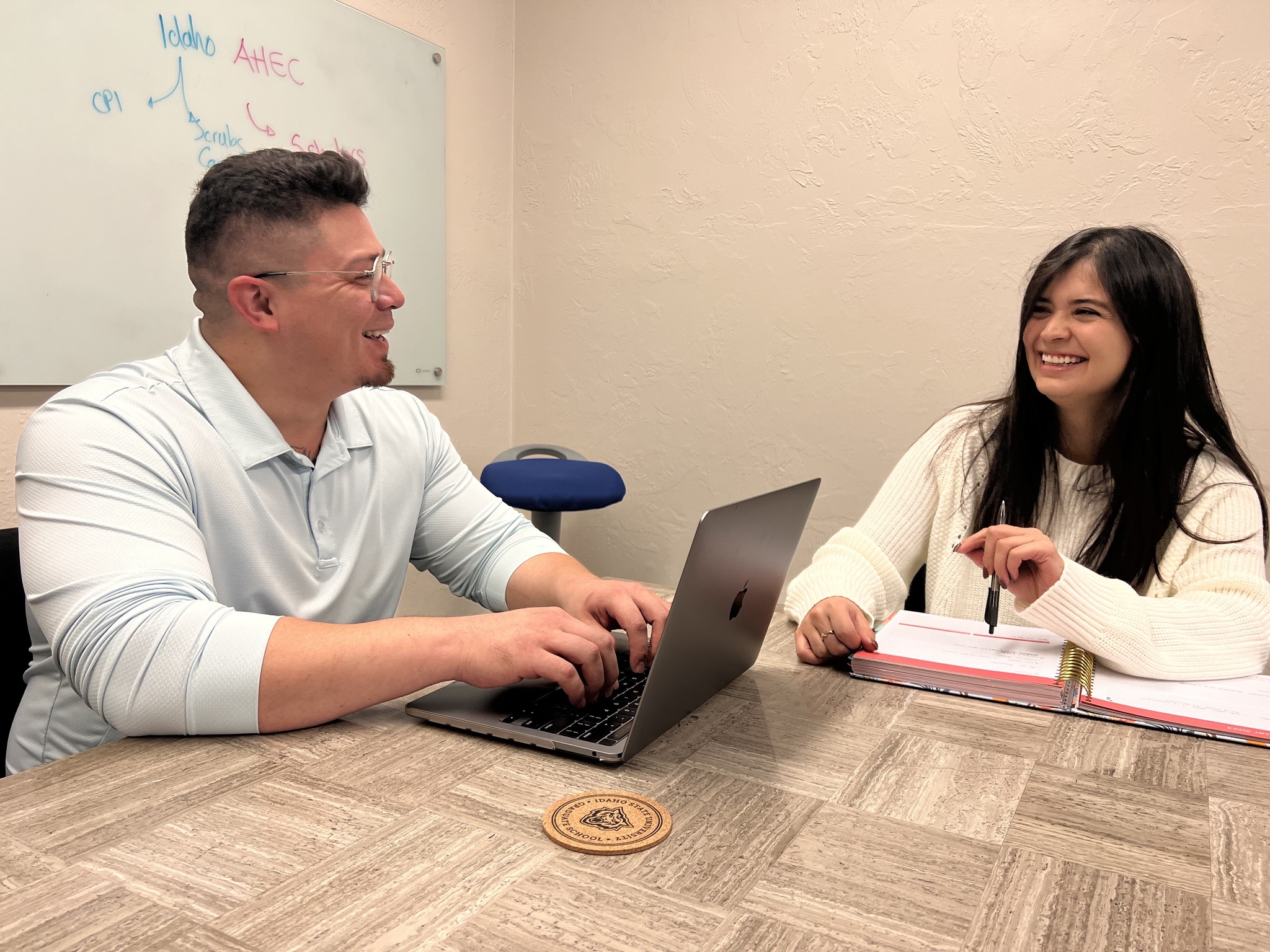Making the World a Better Place: ISU Graduate Works to Improve Mental Health Care
May 6, 2024

Joseph Chacon has a goal to make the world a better place. To get started, he graduated with a master’s degree in public health and two graduate certificates, in rural health and medical anthropology, from Idaho State University on May 4 in Pocatello.
Chacon chose public health because the field aligns with his goals and he believes everything is interconnected, especially regarding health. For him, and for many who go into the field of public health, nothing exists alone.
As a member of the Shoshone-Bannock Tribes, he feels strongly about the care and treatment provided to those who have been incarcerated in tribal jails, or are currently somewhere in the judicial system. Joseph believes there is a better way to provide mental health treatment for those who need it.
“In terms of treatment for addiction and other mental health illnesses, celebrated accomplishments and justifications for continuing the way things are done now have been based on fragmented data that often contradicts claims,” Chacon says. “My experience in these situations and my educational experience at ISU have prepared me to help people have a better outcome.”
Chacon and professors at ISU developed a research design that could help. In a detailed theory and concept-based article that discusses issues with mental health treatment within the judicial system in the United States, Native Nations, and in Idaho, they emphasize a number of solutions, one being improved, high-quality communication between treatment teams and judges.
When it comes to treatment options for individuals who have been charged with drug or alcohol related crimes, Chacon notes some problems with the system when the ultimate decision is made by a judge.
“Regardless of what the treatment team suggests, the judge can go against that if they choose to, which often lands people in jail as opposed to a treatment plan that would be best for that person and their unique needs,” he says.
“Judges and sometimes even treatment teams don’t often understand the complexities and dynamics for the majority of people who are diagnosed with more than one mental health issue,” he adds.
Chacon says many treatment programs are structured in a way to make participants successful while they are in the program, but not after it is completed. Additionally, his research shows that these treatment programs are not quite as successful as they claim to be. This can lead to reincarceration when a person relapses which Chacon believes could be avoided if better treatment was available.
“Our research shows that treatment being provided to people through these judicial programs on and off tribal lands has not been shown to be a contributing factor to the success of individuals within the judicial treatment programs and there isn’t much that’s being done to make it better,” Chacon says.
The article proposes further a two-factor approach to treatment. In addition to improved communication between treatment teams, incarcerated individuals and judges, work must be done to change the perception among judges and treatment teams.
“Seeing addiction as a treatable illness as opposed to a crime is not something everyone understands,” Chacon says. “Changing the perception of judges and treatment teams to allow them to recognize individuals who have an illness, as opposed to giving a standardized sentence frequently applied to criminals, will take time.”
Putting his research into action, Chacon was able to work with the Shoshone-Bannock Tribal Health and Human Services and Idaho Area Health Education Centers (AHEC) Program Office to begin developing a community needs assessment (CNA) aimed at improving health related programs and services for the Shoshone Bannock Tribes. After graduation, he begins work with tribal health leaders to deliver the CNA and analyze the resulting data to facilitate community and systems-based approaches and solutions.
Categories:
